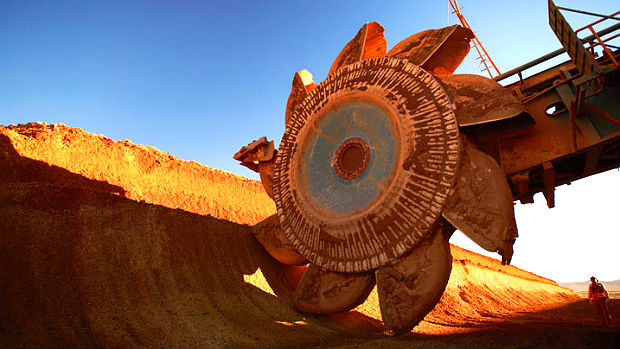BHP Billiton gets tough as prices stay low
Commodity prices are depressed, but cut-throat manoeuvres may keep the mining firm competitive

A free daily email with the biggest news stories of the day – and the best features from TheWeek.com
You are now subscribed
Your newsletter sign-up was successful
Mining juggernaut BHP Billiton is determined to put a brave face on a situation in which commodity prices could stay low for a prolonged period. The £73 billion business is adapting to lower metal and energy prices by streamlining operations, rethinking growth projects and driving through cost efficiencies.
Its decision to flood the market with iron ore has angered parts of the mining industry and further depressed the price of the raw material – used in the production of steel - which is already in plentiful supply globally. But when it can produce iron ore cheaper than most other miners, thanks to high-quality, low-cost assets, you can see why BHP has flexed its muscles to maintain a competitive edge, particularly as iron ore accounts for nearly a third of its earnings.
'The reductions in prices we face today are something our industry and country has seen many times before and while this operating environment tests us, I am optimistic for the future,' says chief executive officer Andrew Mackenzie, addressing an Australian conference on 3 June 2015.
The Week
Escape your echo chamber. Get the facts behind the news, plus analysis from multiple perspectives.

Sign up for The Week's Free Newsletters
From our morning news briefing to a weekly Good News Newsletter, get the best of The Week delivered directly to your inbox.
From our morning news briefing to a weekly Good News Newsletter, get the best of The Week delivered directly to your inbox.
BHP argues that cutting low-cost supply of natural resources encourages the continuation, or entry, of more costly production. It argues that this would deprive the market of its 'power to deliver the most efficient supply'.
The last man standing, it believes, will be the one with the right commodities, best assets, operational excellence, balance sheet strength and capital discipline. That's why the company will now focus the business on the four core areas of petroleum, iron ore, copper and coal.
It has ejected a large number of higher-cost mines across such commodities as nickel, zinc, silver and aluminium into a new vehicle called South32, which listed on the London Stock Exchange in May 2015. The higher-quality assets left in BHP's portfolio contributed the vast majority of its earnings in the financial year ending 30 June 2014.
While BHP is now a leaner business, shareholders will still need to be patient. 'The divestment is occurring at an unfortunate time, with many of the key commodities currently priced at levels not seen since the post credit cruch period in 2009. The result is that the new "improved" BHP Billiton is likely to report decade-low earnings in its maiden year,' says specialist bank Investec.
A free daily email with the biggest news stories of the day – and the best features from TheWeek.com
Times are tough but not ruinous. The diversified resources group is expected to generate sufficient operating cash flow to cover all capital expenditure requirements, keep paying higher dividends each year and steadily pay down debt.

-
 What to know before filing your own taxes for the first time
What to know before filing your own taxes for the first timethe explainer Tackle this financial milestone with confidence
-
 The biggest box office flops of the 21st century
The biggest box office flops of the 21st centuryin depth Unnecessary remakes and turgid, expensive CGI-fests highlight this list of these most notorious box-office losers
-
 What are the best investments for beginners?
What are the best investments for beginners?The Explainer Stocks and ETFs and bonds, oh my
